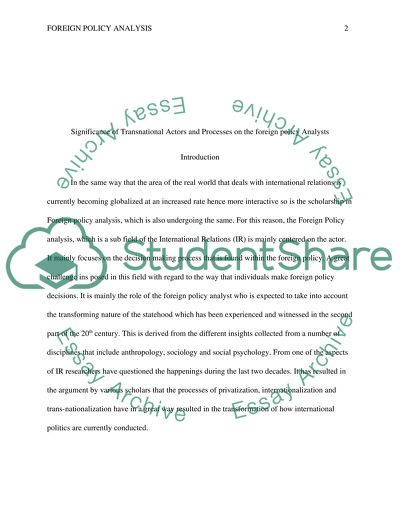Cite this document
(“What significance should transnational actors and processes have for Essay”, n.d.)
Retrieved from https://studentshare.org/social-science/1639174-what-significance-should-transnational-actors-and-processes-have-for-the-foreign-policy-analyst
Retrieved from https://studentshare.org/social-science/1639174-what-significance-should-transnational-actors-and-processes-have-for-the-foreign-policy-analyst
(What Significance Should Transnational Actors and Processes Have for Essay)
https://studentshare.org/social-science/1639174-what-significance-should-transnational-actors-and-processes-have-for-the-foreign-policy-analyst.
https://studentshare.org/social-science/1639174-what-significance-should-transnational-actors-and-processes-have-for-the-foreign-policy-analyst.
“What Significance Should Transnational Actors and Processes Have for Essay”, n.d. https://studentshare.org/social-science/1639174-what-significance-should-transnational-actors-and-processes-have-for-the-foreign-policy-analyst.


